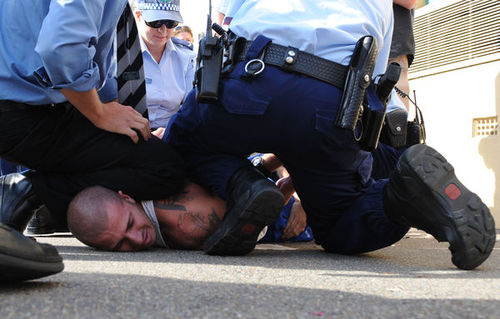The ability to record videos through smartphones has made a huge impact on our society. Some of these recordings have been the impetus for social change, in particular some recent law enforcement videos. Videos may not tell the whole story but they are compelling evidence that allows the viewer to make up their own mind. Access to injury accident videos, for example, can make the job of personal injury lawyers a lot easier.
When it comes to taking video of police activity, there has been much discussion on what is, and isn’t legal. The police themselves are sometimes unaware, as evidenced by last year’s arrest of a Washington Post reporter and another member of the press in Ferguson, Missouri.
What are your rights when it comes to taking videos of law enforcement offices?
Photography in Public Spaces
When you are in a public space, you are allowed to take video or photographs of anything in plain view. If you are in a privately owned area, however, the owner of the property dictates the rules. If you don’t comply with an owners request to stop taking video, the property owner can go so far as to have you arrested for trespassing.
The rules are similar when recording police activity with some caveats.
Recording Police Activity
The American Civil Liberties Union (ACLU), offers the following:
- Law enforcement may not take or even demand to view your video without a warrant.
- Under no circumstances are police allowed to delete photos or videos from your camera, nor may they take your camera’s memory card.
The above being stated, the ACLU adds that the police may ask you to stop taking video if doing so truly interferes with legitimate law enforcement activities. They also state that the right to photograph in public doesn’t give citizens the right to break other laws.
What to Do If You Are Stopped for Video Taping Police Activity
You should be polite when dealing with police and avoid any physical confrontation. Asking a simple question will determine where you stand. That question is “am I free to go?” Until you ask to leave, any stop is considered voluntary. If the officer says you may not leave, then he is saying you are being detained and you should ask what crime you are being detained for.
What Police Say
The International Association of Chiefs of Police (IACP) have their own guidelines. While they do not necessarily conflict with those of the ACLU, they are couched a bit differently. An NBC article outlines those guidelines.
The IACP says that videographers should “keep a reasonable distance” and not violate the privacy of victims or witnesses. The law enforcement organization further states that citizens should not place “themselves in a manner that would either passively or actively hinder, impede” police activity. It cautions about “repeatedly engaging officers with questions or distractions that unduly hinder police activities to protect life and safety”.
As more and more of these videos make the news, some communities are responding by outfitting police with their own video cameras. This can help protect both citizens and police. There are, of course, issues of cost and accessibility to be addressed. It would appear however, many areas are recognizing the value of monitored police activity through video.
Other Effects of Videos
Access to videos is a relatively new tool of personal injury lawyers. Smartphone videos taken on the scene of an accident can better help viewers understand the circumstances surrounding an injury accident. Experienced Oregon personal injury lawyers like Nelson MacNeilRayfield (NMR) will seek out all evidence in a personal injury case, including any available police or private videos and photographs. Smartphone videos are changing many aspects of our society, including law enforcement and the documentation of injury accident cases. They will likely continue to do so.
